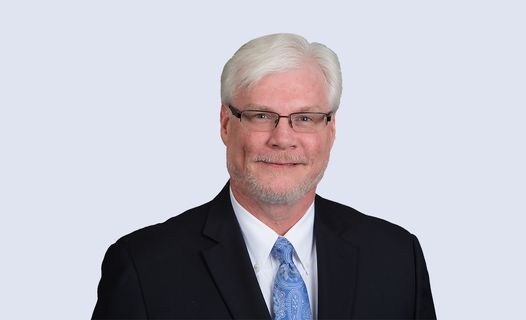Over the past several weeks – or months, depending on where you are located – dealerships have had to quickly respond to challenges stemming from the COVID-19 outbreak. From closing sales departments, to working with employees who have contracted the virus or believe they have contracted the virus, we know things have been hectic.
But even during these unprecedented times, you must remember your obligations under the Americans with Disabilities Act (ADA). Otherwise, when operations eventually return to normal, you will have to brace yourself for an onslaught of disability claims.
EEOC Affords Some Flexibility, But ADA Obligations Remain
For nearly 30 years, the ADA has guaranteed employment opportunities to individuals with disabilities. The ADA, along with the ADA Amendments Act, also restricts an employer’s ability to make certain medical inquiries.
But what is an employer to do in the midst of a global pandemic where medical inquiries are necessary to ensure the health and safety of its employees and the general public? Fortunately, the Equal Employment Opportunity Commission (EEOC) has weighed in.
On March 18, 2020, the EEOC published What You Should Know About the ADA, the Rehabilitation Act, and COVID-19, which confirms you have the ability to make otherwise impermissible medical inquiries during the COVID-19 pandemic. Accordingly, your dealership can currently do any of the following without violating the provisions of the ADA:
- ask employees if they are experiencing symptoms of COVID-19, provided that you maintain the information as a confidential medical record;
- measure employees’ body temperatures;
- tell employees who become ill with symptoms of COVID-19 to stay home (or leave work);
- require employees returning to work to provide a doctor’s note stating they are fit for duty;
- screen job applicants for symptoms of COVID-19 after making a conditional job offer, as long as you do so for all entering employees in the same type of job; and
- withdraw a job offer when you need the applicant to start immediately but the individual tests positive for or has symptoms of COVID-19.
This guidance is welcome news for dealerships, but it does not release you from other ADA obligations. Further, your dealership must still comply with state-specific and workplace safety requirements.
Temperature taking is a perfect illustration. Generally, measuring an employee’s body temperature is a medical examination. But because the CDC and state/local health authorities have acknowledged community spread of COVID-19 and issued attendant precautions, the EEOC has confirmed that employers may measure it (though, you should be aware that not everyone infected with COVID-19 has a fever) despite the ADA’s normal limitations.
However, if your dealership is subject to the California Consumer Privacy Act (CCPA), then you must provide employees with a CCPA-compliant notice prior to or at the same time as your collection of temperatures. Additionally, OSHA has outlined recommended steps that you should take if you task an employee with taking the temperature of other employees, applicants, or customers (which can be found in our firm’s Comprehensive FAQs).
Dealerships Are Not Immune From All ADA Claims
Even though the EEOC has given employers the flexibility to take steps normally prohibited by the ADA, you should be mindful that other ADA issues can still arise. As an initial matter, the COVID-19 outbreak has and continues to wreak havoc on the economy (which we all hope is temporary in nature). The skyrocketing unemployment numbers are just one indicator. And, history tells us that when unemployment is high, employment-related legal claims are, too. As a result, your dealership can anticipate that EEOC charges and discrimination lawsuits will be one of the lingering symptoms of coronavirus. While your dealership may not be immune to a legal claim, you can take steps to keep your organization healthy.
First, you can ensure that all layoff, furlough, or discharge decisions are based on legitimate and non-discriminatory criteria. Depending on the size of your workforce reduction, you may need to consider performing a disparate impact analysis before making a decision. That is, you should determine whether a seemingly neutral criterium causes disproportionate harm to a protected group of employees (e.g., those whose disability you have reasonably accommodated).
Next, make sure that you maintain the confidentiality of any medical information that you receive from your employees, from applicants, or from customers. Say, for example, an employee tests positive for COVID-19. While the normal expectations may be loosened, you must strike a balance between protecting that employee’s privacy with alerting other employees (or even customers) that they are potentially at risk. Templates and forms to assist you navigating this minefield can be found here.
As a final tip, you should keep in mind that the EEOC has not taken a position on whether a COVID-19 infection constitutes an ADA-protected “disability.” Sure, the EEOC has advised that employers may ban employees who are confirmed or suspected to be infected with coronavirus from the workplace, but the EEOC has not weighed in on whether employers must accommodate those employees in some way under the ADA.
While it seems unlikely that a temporary COVID-19 infection – standing alone – will be considered a disability, your dealership may still need to provide certain employees with accommodations. For instance, you may be required to accommodate the anxiety or other mental health issues your employees are experiencing or employees whose recovery from the infection is prolonged.
Stay Physically And Operationally Healthy
These are unprecedented times. The EEOC has fortunately recognized the challenges that employers face, and relaxed certain ADA prohibitions. While this gives your dealership much-needed flexibility to respond to pandemic-related challenges, you should not be lulled into a false sense of security.
We will continue to monitor this rapidly developing situation and provide updates as appropriate. Make sure you are subscribed to Fisher Phillips’ alert system to gather the most up-to-date information. For further information, contact your Fisher Phillips attorney or any member of our COVID-19 Taskforce, or review our Comprehensive and Updated FAQs.


